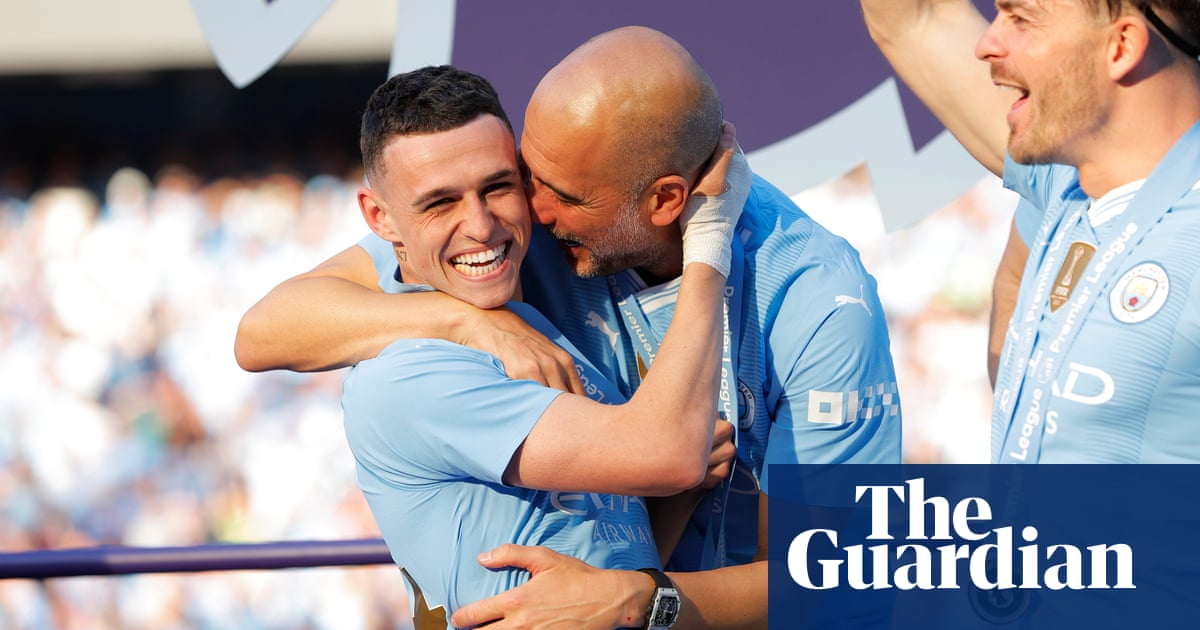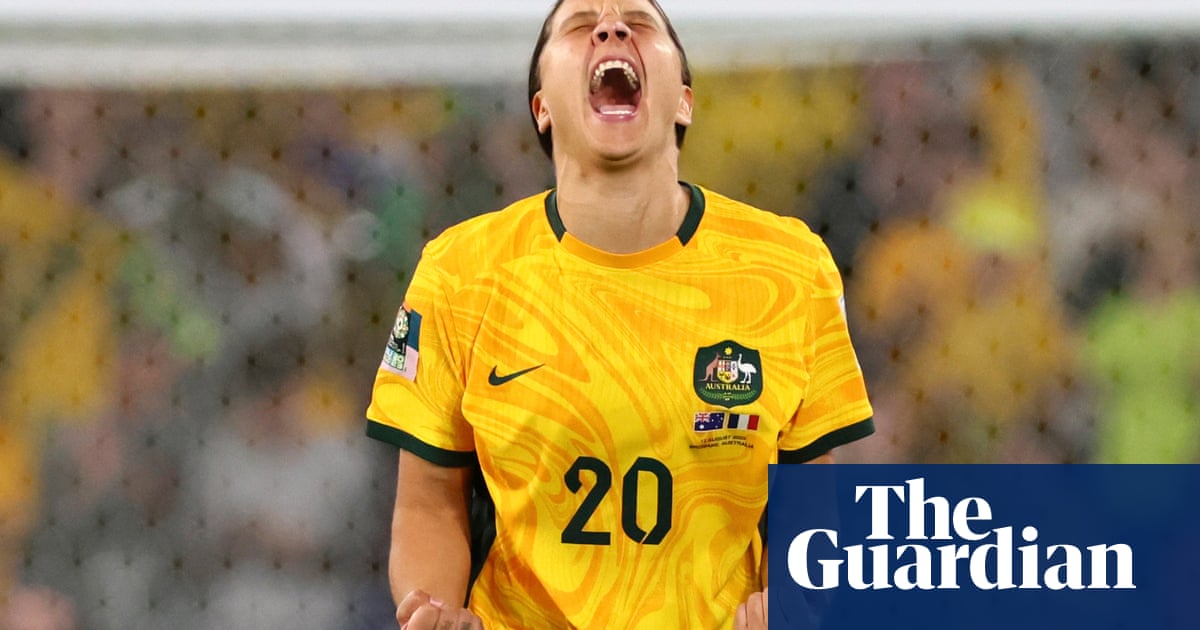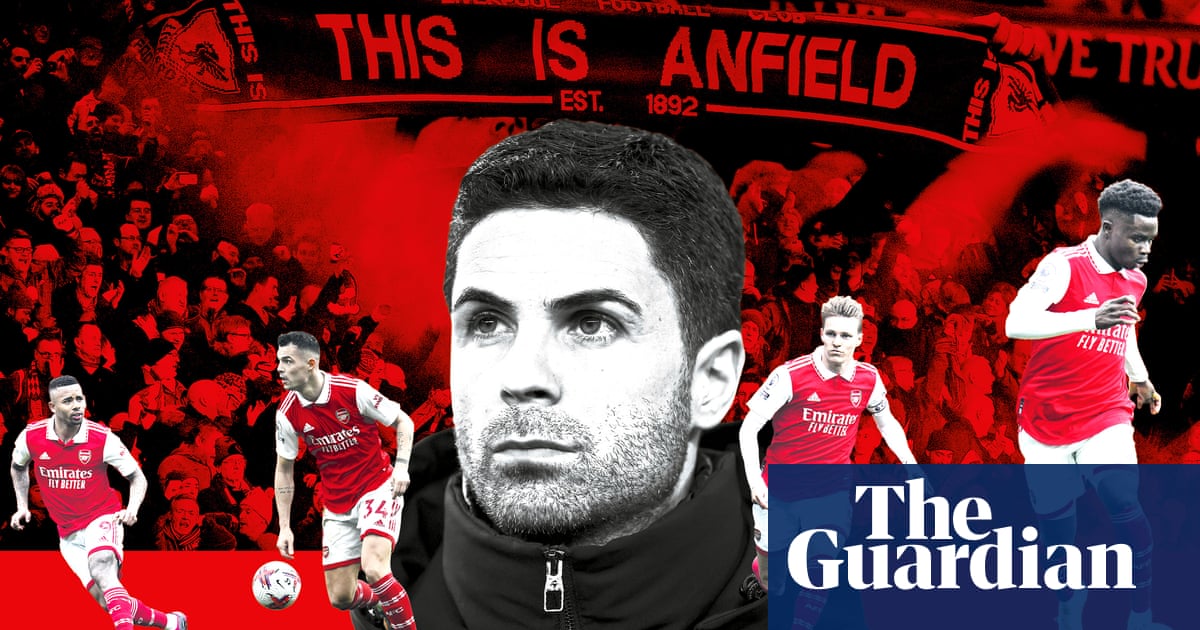
n Saturday, five days after the killing of George Floyd by police in Minnesota, the NFL spoke out. It released a short statement by its commissioner, Roger Goodell, offering his condolences to the Floyd family, stating the “urgent need for action” without identifying what that action might be, addressing “systemic issues” without specifying what those issues were. The words “police”, “black” and “racism” were not mentioned. It was a word salad, reading like the cryptic statement of a surly 61-year-old teenager, fed through the yoghurt pot of a corporate communications department, and spat out on to the internet in a shareable meme format.
The NFL’s commitment to social justice may have come across a little more sincerely had the sport not so ruthlessly ostracised the San Francisco 49ers quarterback Colin Kaepernick when he made his on-field protests against police brutality in 2016 and 2017. As Joe Lockhart, the league’s former vice-president, admitted last week, the decision by NFL owners not to hire Kaepernick was an ideological choice. “No owner was willing to put the business at risk over this issue,” he said. And as Goodell himself put it at an owners’ meeting in Texas last December: “We’ve moved on.”
On Saturday, UFC also spoke out. At the start of its latest televised event in Las Vegas, it showed a graphic on screen honouring Floyd’s memory. Asked to explain the gesture the UFC president, Dana White, responded: “Because we should. What happened was horrible. It’s something really affecting this country right now.”
The UFC’s commitment to commemorating the victims of racist violence might have carried a little more weight had it chosen to sanction Conor McGregor, one of its most lucrative fighters, for asking Floyd Mayweather to “dance for me, boy”.
On Saturday, Barcelona spoke out. “Racism, as a form of discrimination that seeks to degrade and marginalise people because of their gender, sexual orientation, origin or skin colour, is a pandemic that affects us all,” the club said in a statement released on social media. “At Barça, we will not stop fighting it.”
Barcelona’s commitment to fighting racism might have been a little more convincing had it displayed a vaguely workable understanding of what racism actually means. Had it not tried to swivel the death of an unarmed black American into a schmaltzy, universalist parable about all discrimination everywhere. Had it not rolled out the red carpet for Luis Suárez in 2014 without publicly reckoning with his guilty finding by the Football Association for racially abusing an opponent. Had it not signed Antoine Griezmann in 2019 without remotely addressing the photographs he had shared of himself in blackface.
But for these organisations to recognise all this would have required genuine sacrifice, genuine introspection, genuine learning, genuine work. It would have required recognising the systems that enable racism, the structures that preserve it, the political forces that encourage it, the frames of language and behaviour that excuse it, the financial inequities that underpin it. It would have required hard choices, contentious choices, choices that alienated a part of their fanbase, perhaps even choices that ended up costing them money. It would have meant taking a look in the mirror. It would have meant accepting complicity. Far easier to get the social media team to mock up a striking visual, draft some anodyne messaging about racism having no place in society, sit back and drink in those sweet engagement numbers.
One thing you learn after a while is that there is virtually no trend, no movement, no conversation that big brands will not try to centre on themselves. This is anti-racism as PR exercise, as corporate strategy, as trending topic and hashtag and content nodule. Or as Americus Reed, a Wharton School marketing professor, told the New York Times: a form of “values and identity-driven targeted marketing”. Really warms the soul, doesn’t it?
Naturally, there is also a minefield of privilege and fury to be negotiated here. Saying nothing can be as incriminating as saying the wrong thing. Equally, there’s a distinction to be drawn between speaking out, and speaking for the sake of it. Speaking for attention. Speaking out of obligation. “The Premier League stands alongside all those who are opposed to discrimination in any form,” the league’s official account tweeted on Tuesday afternoon, a thought that appears to have taken them almost a week to formulate.
We can all have a good chuckle at David Guetta’s bizarre Martin Luther King remix at a Major League Soccer fundraiser. But ultimately, this is a cause too important to be hijacked by corporate insincerity. Sports teams and organisations are not uniquely culpable for the deep well of injustice that led to Floyd’s death last Monday. They are not uniquely responsible for restitution. But many inspire a loyalty and identity that most companies can never hope to match. People will follow, if only they would lead.
And if they aspire to be more than faceless brands, they need to show us what lies behind the hashtag. Show us your boardroom representation. Show us your investors. Show us how you’re tackling unconscious bias. Show us how you’re educating your athletes and your fans. Show us what you’re doing about police brutality when it’s not a news story. Show us how you’re pushing back on racism when it doesn’t directly affect you. And if this is a cause you genuinely care about, show us – ultimately – what you’re willing to risk for it.












